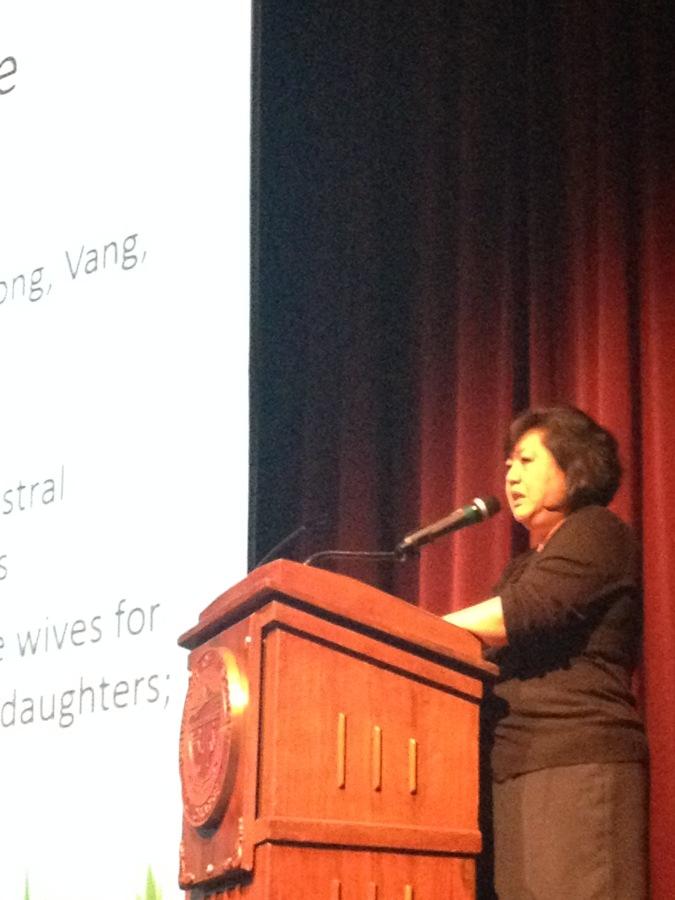Gender and immigration activist disusses Wisconsin’s large Hmong population, current issues
October 29, 2014
Belittlement and degradation based on inescapable consequences such as gender or skin color is an unfortunate reality that many never experience. As UW-La Crosse welcomed Kaying Yang on Oct. 22, audience members were given the opportunity to walk a mile in another’s shoes and demolish preconceived notions regarding Hmong culture.
Many will admit they know very little, if any, about the Hmong culture. This was the exact reason Yang accepted the invitation to speak at UW-L- to raise cultural awareness and promote women’s rights and empowerment within the Hmong community not by criticizing, but by pointing out avoidable weaknesses.
Yang, a gender and immigration activist herself, promotes female empowerment for a culture that is self-admittedly misogynistic.
She stated, “Even though we have a beautiful culture and heritage, unfortunately [Hmong] look down on women,” which drove the crowd into one of two rounds of applause that shook the room.
There was another burst of applause at the mention of Xong Xiong, the co-executive director and individual widely regarded as responsible for the resuscitation of the Hmong Cultural and Community Agency in La Crosse. In Hmong culture, traditionally, women have a lower status than men, as men are seen as someone to carry on their father’s name. This is something Yang is looking to change.
“Gender messages conveyed by family, mass media, and other institutions largely favor males having a dominant status,” Yang said, “and without a movement of people intentionally building a community that respects gender equality, social change will not take root.”
Yang said she was “thrilled” by the opportunity. Prior to her speech in Cartwright’s Valhalla, she shared conversation and laughter with many students and fellow members of the Hmong community who were eager to meet her. Yang grew up in Manitowoc but lived in Laos and Thailand and provided her personal insight on Hmong culture and history.
During the Vietnam War, many Hmong men in Laos were recruited by the U.S. Army to support the American effort, as President John F. Kennedy believed that Laos’s remaining independent from communist reign was crucial. Laos failed to remain independent, and the U.S. withdrew from the war after a ceasefire, leaving thousands of Hmong stranded. Many of these families were placed in refugee camps, and Yang is responsible for helping nearly 15,000 Hmong people leave refugee camps in Thailand and gain independence in the United States.
The speech also included a film that was created to follow Yang’s journey in finding independence for Hmong families, many of which were sent to St. Paul, MN, a Hmong hotspot. The top three states with Hmong presence are California (91,000), Minnesota (66,000) and Wisconsin (49,000).
With Hmong culture increasing their influence 97 percent nationally since just 2000, and nearly 50 percent of those individuals still unable to vote, the future of the culture looks bright. Next year will mark the 40th anniversary of Hmong culture’s integration within American society.
Yang received a standing ovation for her speech. Since October is domestic awareness month, she hopes that her speech will open the eyes of both Hmong and non-Hmong Americans.






